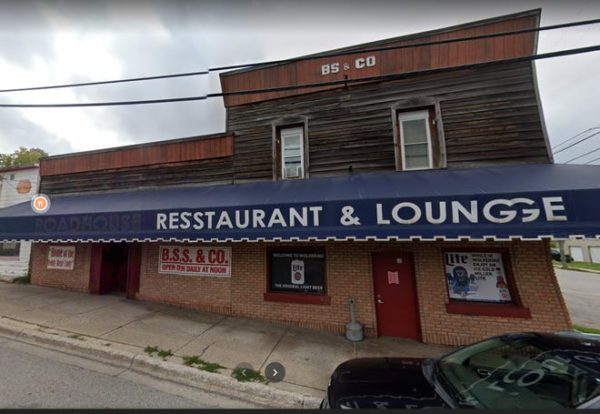A Black man is free to sue the Michigan bar where he was beaten up and called a racial slur, according to a ruling by the state Court of Appeals.
On Thursday, the court said staff of the BS & Co. bar, had an obligation to call police once the initial punches were thrown.

According to his lawsuit and court testimony from The Washington Post, Edward James Tyson was on his way to the Wolverine Michigan bar on Sept. 12, 2015, to pick up a pizza order just outside the establishment.
Tyson testified that as he came towards the bar he was met with racial slurs by two individuals who were “targeting him with the N-word.” Court documents said Tyson “expressed his offense” and kept continued to walk past when 68-year-old white customer David Dawkins blocked him and allegedly called him the N-word.
The 38-year-old Tyson testified that he attempted to back away from the man, while Dawkins said Tyson had “postured for a fight,” according to court documents, reported The Washington Post.
Tyson and Dawkins both agreed that Dawkins punched Tyson, hard enough, the victim’s friend said, that his head bounced off the concrete.
Staffer Ian Graham said that someone came into the bar and informed Dawkins that Tyson was looking for him, so Dawkins went back outside to resume the fight. Dawkins testified that after he punched Tyson some more, he remained at the bar for an addition half an hour and was not asked to leave.
Graham, who witnessed the entire incident, told the court that he immediately identified Tyson, saying, “We only have one colored in our town.” He said he had heard a man with a “reputation for being racist” had hit the Black patron after calling him a racial slur, and that Tyson did not hit back. He only continued to ask, “Why are you calling me that?”
There are differing versions of how the staff chose to react, with the night-shift manager testifying that “she offered to call police when Tyson eventually entered the bar for his food, but didn’t follow through after he declined,” The Washington Post reported. Even so, no one working at the establishment called police to the scene.
Tyson said he had no memories of that night, and had to undergo emergency room treatment and speech therapy as well as suffered from “significant physical and psychological limitations” due to the attack, according to his lawsuit.
Initially, a Cheboygan County Circuit Court judge said Tyson could not sue the bar for negligence, however, the Michigan Court of Appeals overruled the judgment, allowing Tyson to move forward with his lawsuit.
“A jury might also conclude that had Dawkins learned that the police were called after the first assault, he would not have felt emboldened to engage in the second assault,” the appellate court’s ruling read in part.
The judges said that despite the fact the beatings happened outside the front door, it does not affect the decision.
“A reasonable jury could conclude that because defendant’s bar patrons congregated out front on the sidewalk on bike nights and flowed in and out of the bar on a regular basis while temporarily leaving their drinks at the bar, the area around the front entrance was effectively defendant’s premises,” said judges Jane Beckering and Douglas Shapiro in their decision.
An attorney for the bar owner, Jeffrey Gerish, said Unthank LLC believes that “racial violence is abhorrent.” However, he argued that the bar should hold no liability because the incident took place outside the front door.
“There’s people all over the place when this is happening. … Why would the duty [to call police] fall on Unthank and not anybody else who happened to be around?” Gerish told AP News.
According to court records, Dawkins, who is named in the lawsuit, has pleaded guilty to aggravated assault.
“This case comes to this court at a critical time in this nation’s quest to achieve racial justice. Make no mistake about it: What happened in this case was appalling and it is shocking to the conscience,” George Sinas, Tyson’s attorney, said to the appellate court back in February.
He told The Washington Post the appellate court’s decision was a notice to others of the danger of remaining a bystander when acts of racism occur.
“It was so obvious that a horrible, despicable act of racial violence was unfolding right in front of them,” Sinas said. “And it was obvious that unless somebody did something this was gonna end badly.”


